Elementary
6-12 years
Elementary-aged children have a deep quest for knowledge and an innate curiosity about the world around them. Their imaginations are taking off, and they are becoming abstract thinkers. Our course of study matches our students’ developmental needs and goes beyond the full range of the traditional curriculum. It teaches students how to think, research, express themselves well in writing and speech, and apply their knowledge practically.
The Elementary Child
Often called “Cosmic Education,” the Montessori elementary curriculum presents the whole universe to students starting with five Great Stories, which lay the foundation of all human knowledge. Every area of study is presented through these five stories, and it invites our students to discover the interconnectedness between all disciplines (the study of the Romans may reveal a link to mathematics). Our ultimate goal is the creation of a better world as our students develop an understanding of the responsibilities they have toward others (both animate and inanimate) and themselves.
Quick Facts
Here are some quick facts about the Elementary Classroom:
- Size: 15 - 25 students
- Teachers: 3
- Ages: Mixed-aged classroom. 6-9 years (Lower Elementary) and 9-12 years (Upper Elementary)
- Grades: 1st - 3rd (Lower Elementary) and 4th - 6th (Upper Elementary)
- Immersion: Spanish, French, and English where each teacher speaks in their own language at all times.
- Instruction: Carefully planned combination of individualized and small group lessons.
Beyond the Classroom
This is how we empower our Students beyond the classroom:
- Continue to foster independence and responsibility
- Transition to abstract thinking
- Find joy in discovery and self-exploration
- Learn to navigate social needs, wants, and conflicts
- Practice empathy, compassion, and fairness
- Encourage creativity and imagination
Daily Schedule
The Typical Daily Schedule includes:
- 30 minutes of choral singing
- Morning and afternoon work periods (an uninterrupted three-hour span during which students work independently or receive lessons)
- Individual and group lessons
- Class discussions
- Musicianship classes based on the Kodály method
- Morning and Afternoon outdoor playtime
- An entire work period dedicated to Fine Arts class
Elementary Curriculum
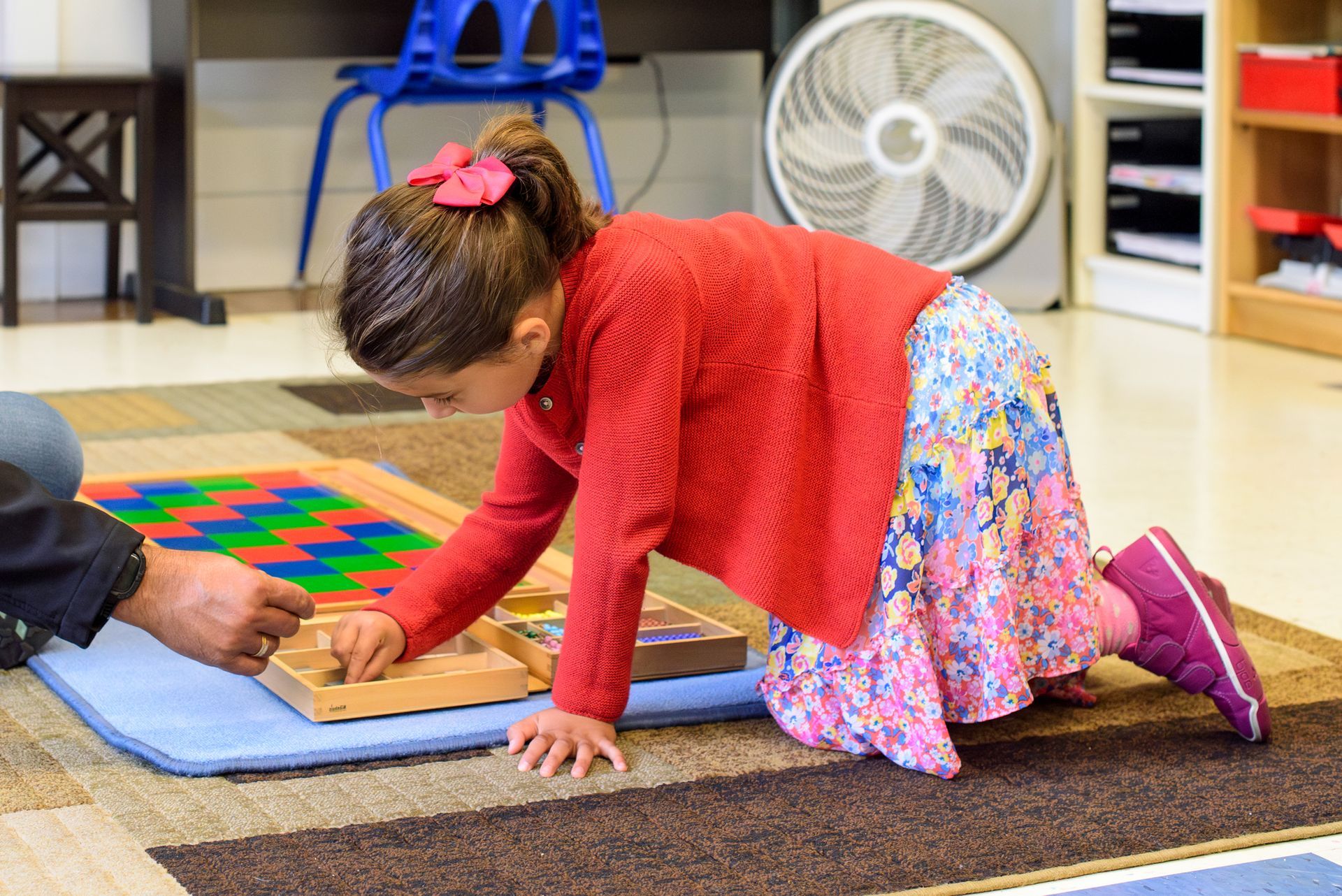
Mathematics
Dr. Montessori believed that all human beings have a mathematical mind - a predisposition towards things pertaining to order, exactness, and precision. The Montessori Math Curriculum is designed to foster this mathematical mind and to lay the foundation for a deep understanding of mathematical principles through beautifully designed materials that allow for concrete and hands-on experiences. At the elementary level, students use their burgeoning imaginations to understand these concepts at an abstract level. Rather than be told how to solve math problems, students embark on a journey of discovery that allows them to derive formulas and identify mathematical laws on their own.
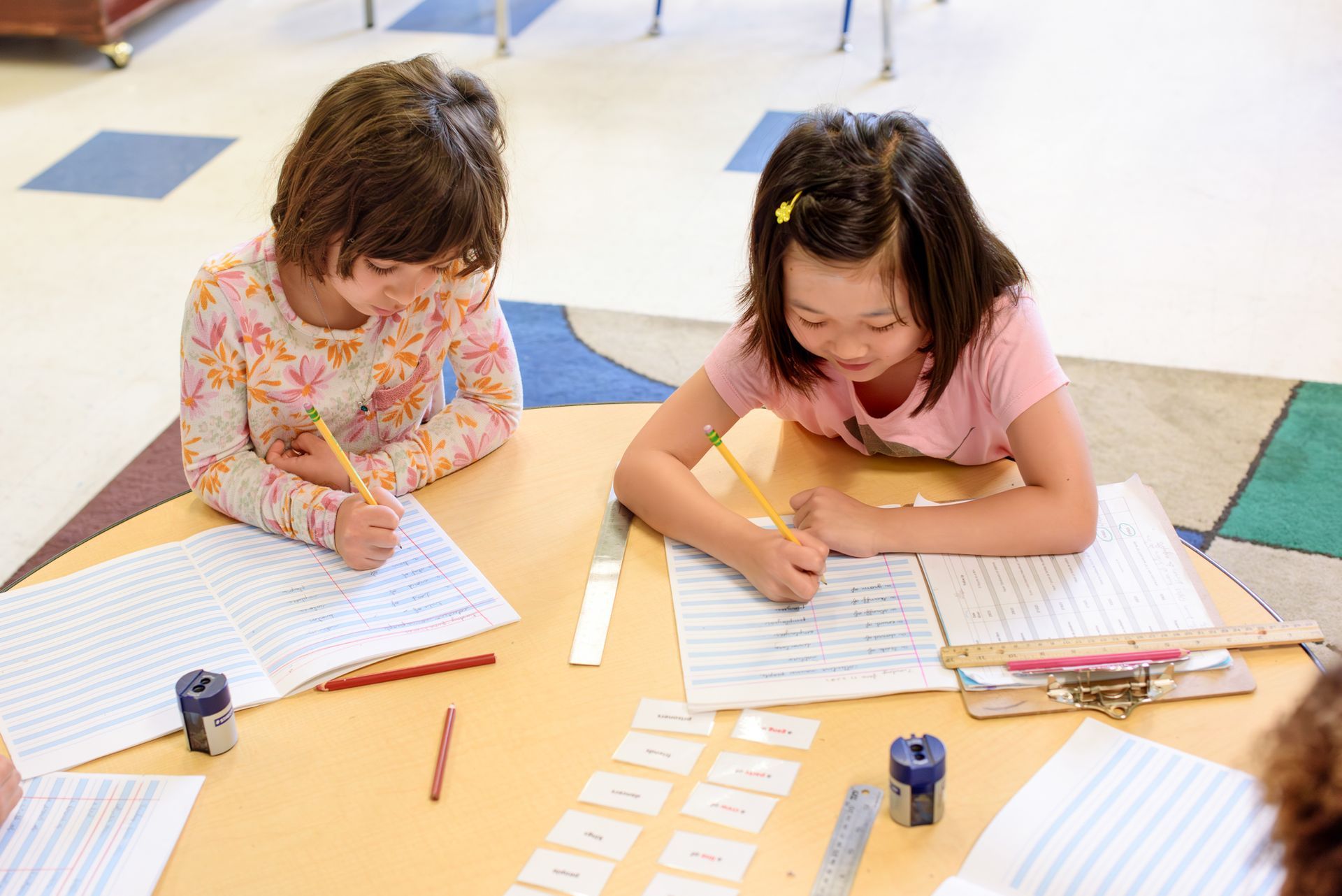
Language Arts
Language is a primary force in our lives as it allows us to communicate with each other and to pass along the richness of human knowledge and culture from one generation to another. Having the ability to communicate in multiple languages opens doors as it both allows for our students to communicate with people from a variety of cultures, but also supports the development of flexible thinking. As preschoolers at TRIS, students learn in two languages, either French and English or Spanish and English.
Then, at the elementary level, a third language is added. Native-speaking faculty immerse students in English, French, and Spanish, bringing a trilingual immersion program to bear. Our goal is for each student to continue developing conversational skills, to learn to read and write in each language, and to continue deepening their appreciation for other cultures.
Students focus on research and composition skills, writing daily and learning to organize increasingly complex ideas and information into well-written stories, poems, reports, plays, and student publications.
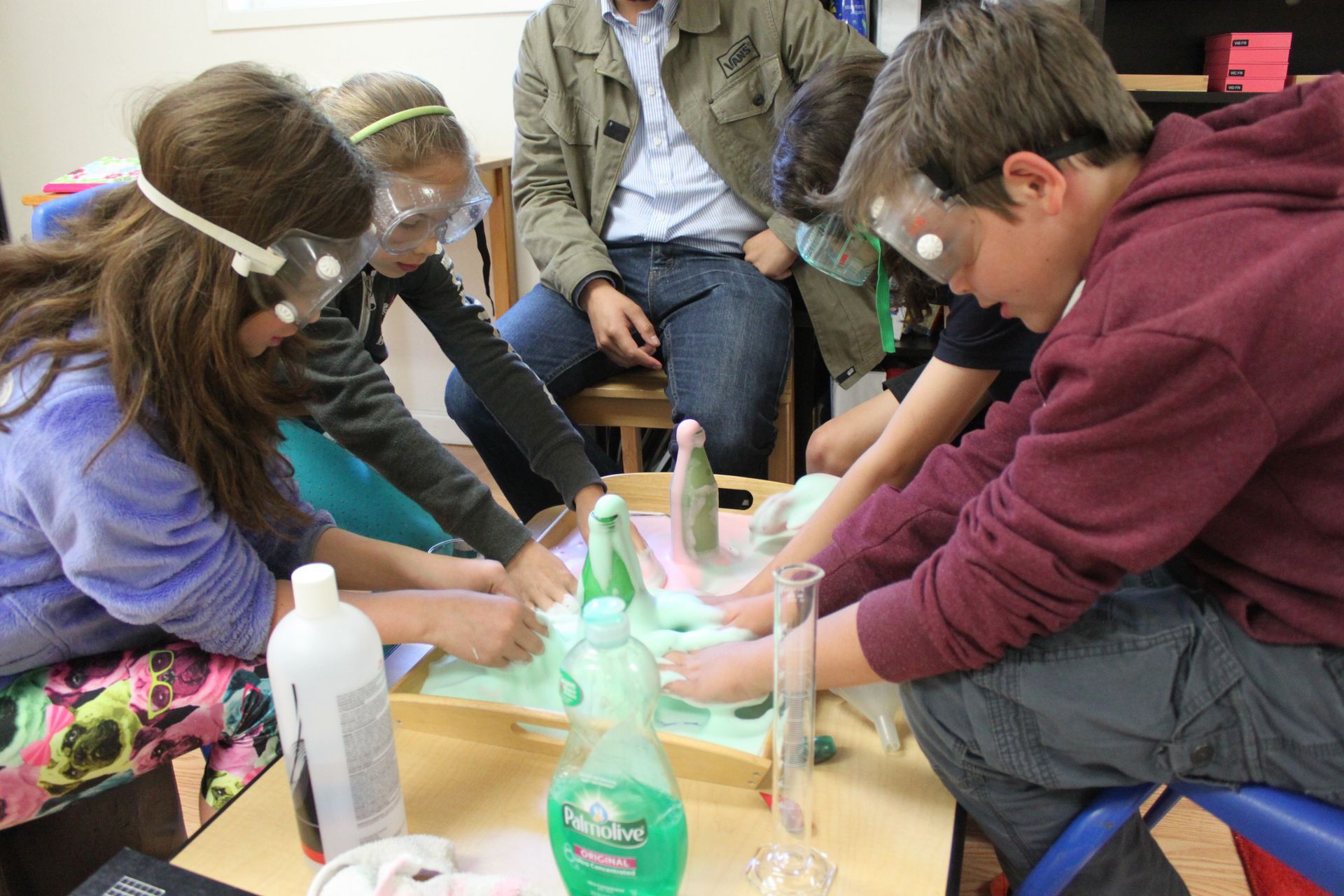
Science
Science is an integral element of our curriculum. The scope of our science curriculum includes botany, zoology, ecology, chemistry, physics, geology, and astronomy.
Through hands-on experiments and research projects, students are given the opportunity to delve deeply into each of these areas. The best learning, however, takes place outdoors. We share our deep love for the natural world with our students through outdoor education, Park Days, gardening, and field trips. Our elementary students often head for the forests, fields, mountains or seashore for several days of camping, hiking, kayaking, fossil digging, and ecological studies. Such outings have led us to Mono Lake to study its very unique ecology and geology. Another favorite is a trip to the coastal area between Santa Cruz and San Francisco to study marine biology. Elephant seals, tide pooling, and the rich marshes of the area provide an unforgettable experience in one of the best classrooms available to us.
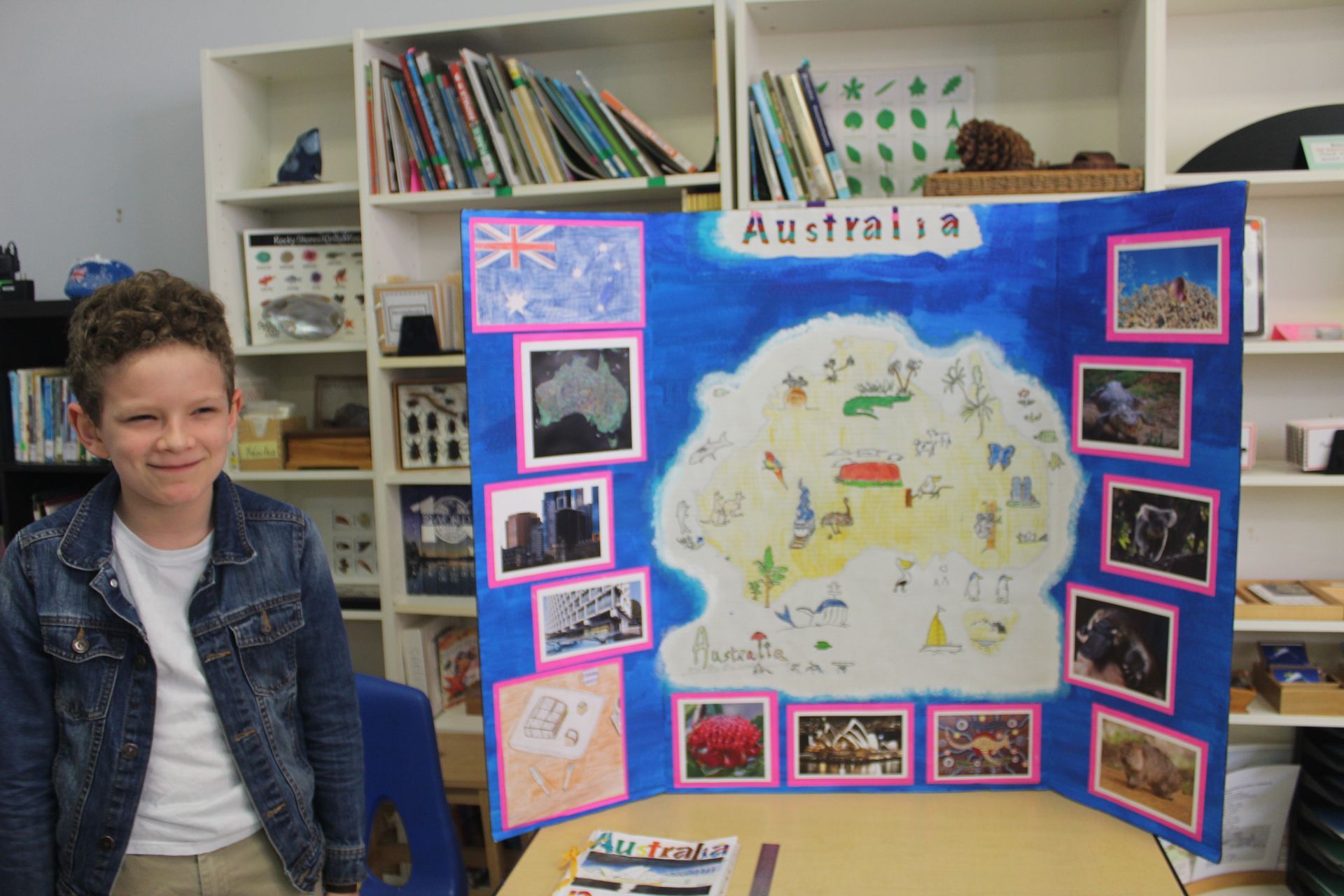
Cultural Study
We live in a world that is composed of many different cultures and people of all backgrounds. Our elementary children learn that they are part of a bigger human community through the study of different cultures and peoples. Every year, each classroom researches a different continent, from exploring its physical geography to understanding its history. This is done through research, cooking, singing and travel to visit different countries in the world. We would like our students to become global citizens who have a profound respect for our differences and an understanding of the human experience that unites us all.
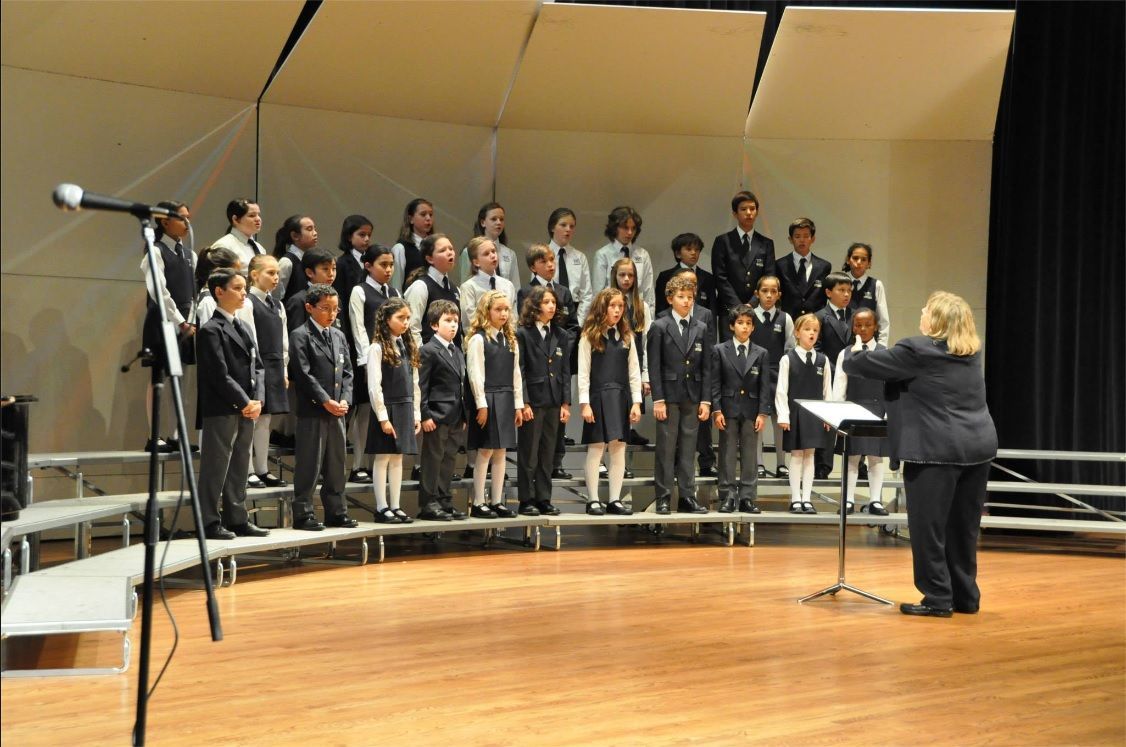
Music
Music is a part of the human experience and can be found in every culture across the globe. At TRIS, it is equally important.
Led by a qualified music instructor, students learn music based on the Kodály Method, founded in Hungary by Zoltán Kodály.
Students develop their musical abilities and participate in various ensembles and private lessons.
The current music program comprises several facets:
- small group lessons using the Kodály method
- daily choral singing where students learn how to work together to make music. When they are ready for it, students are introduced to singing multi-part music.
- introduction to performance etiquette
- introduction to performance with non-parent audiences
- music appreciation and music history
- private instrumental lessons in piano, classical guitar, flute, violin, or drums
- composition
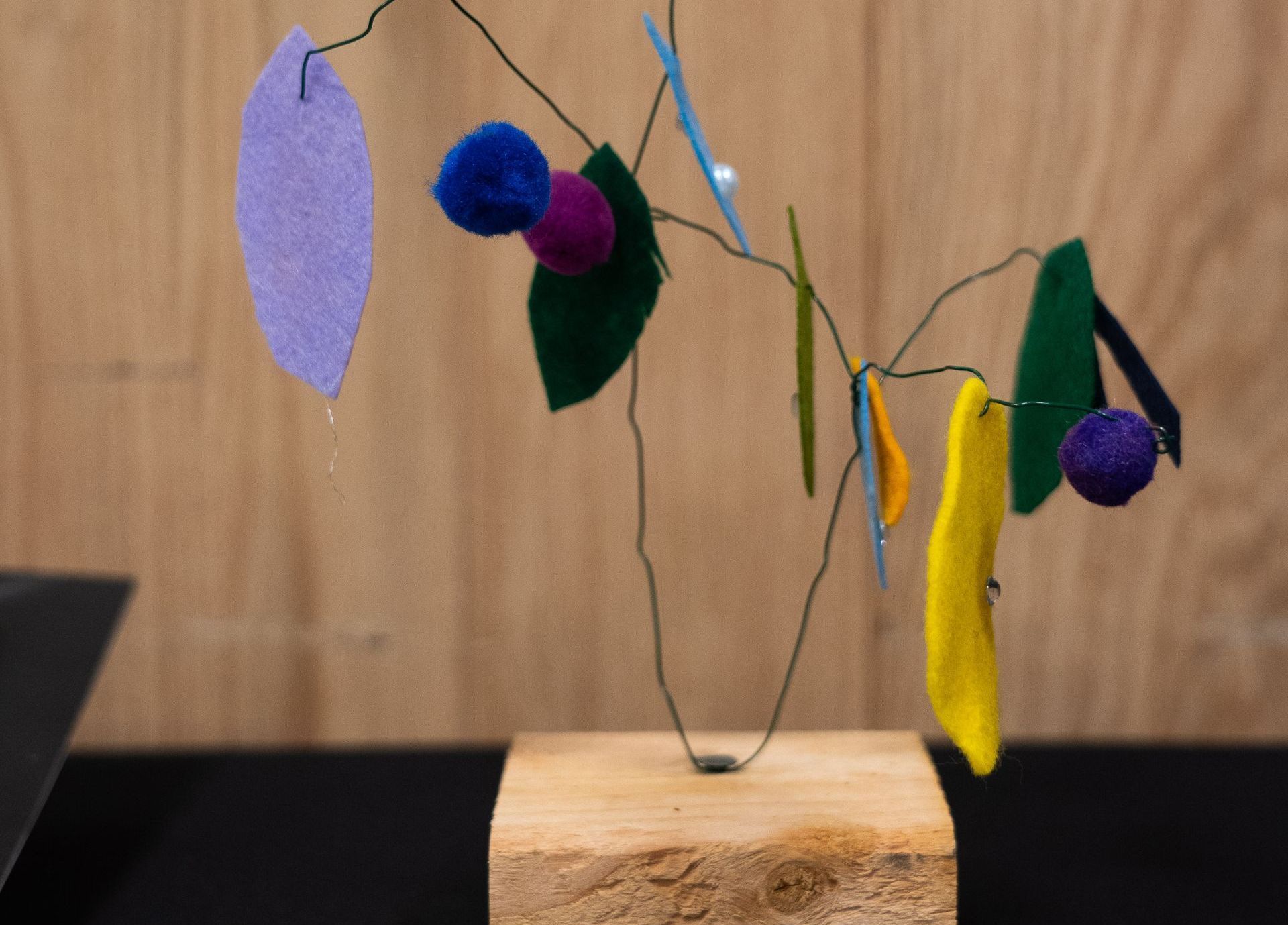
Fine Arts Program
Led by qualified fine arts instructors, elementary students learn fine arts in small groups in a dedicated Art Studio. The Art Program provides opportunities for creativity, self-expression, and lateral thinking. In addition, it allows students to hone their hand-eye coordination, fine motor skills, critical thinking, and concentration.
The Elementary Art Program offers uninterrupted work periods divided into three parts:
- Lessons
- Independent projects
- Art history
Students receive lessons in line, shape, value, texture, composition, color, proportion, spatial relationships, and content in a variety of media. They also work on independent projects of their choice. As part of their study, students learn about the art of other cultures, the work of individual artists, and defined periods in art history. In addition, they take field trips to museums, contemporary art exhibitions, and artist studios.
“The Elementary program at TRIS is unparalleled. The value placed on multilingualism, the superior art and music program, the international travel and the pride in multiculturalism are just some of the unique components of the program. The children completed research projects that took an entire year. They cooked from many countries around the world. They visited China, Italy, Costa Rica and Mexico with TRIS. Overall, it felt natural for them to take responsibility and to expand their horizons because the environment was so nurturing.
My two children who completed all of Elementary at TRIS are now thriving in middle school and high school, respectively. They have the skill set to tackle hard work, a clear sense of time management and sharp executive function, a sense of humor and perspective, and a real love of learning. Many of these characteristics were cultivated lovingly at TRIS.”
